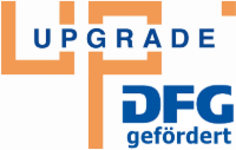Applied Cognitive Linguistics in the EFL Classroom – Introducing New Vocabulary Through Prototype Theory.
Book of Abstracts. The 6th Conference of the Scandinavian Association for Language and Cognition. Lund University. 2017
Erscheinungsjahr: 2017
Publikationstyp: Diverses
Sprache: Englisch
| Geprüft: | Bibliothek |
Inhaltszusammenfassung
As an emerging trend in Applied CL, the talk explores the use of CL -inspired methodologies in vocabulary acquisition research (Boers & Lindstromberg, 2008). The paper presents the results of a quantitative-empirical study in the EFL classroom (N ≥ 320) that assessed whether an innovative approach to teaching EFL lexicon to students based on Prototype Theory might prove more effective than the established, structuralistic method of tea...As an emerging trend in Applied CL, the talk explores the use of CL -inspired methodologies in vocabulary acquisition research (Boers & Lindstromberg, 2008). The paper presents the results of a quantitative-empirical study in the EFL classroom (N ≥ 320) that assessed whether an innovative approach to teaching EFL lexicon to students based on Prototype Theory might prove more effective than the established, structuralistic method of teaching unfamiliar words to learners (as represented by the Oxford Learner’s Dictionary). Widely recognised evidence in Cognitive Linguistics and Psychology demonstrates that subjects readily distinguish between best instances of a category, e.g. a blackbird or sparrow for <bird>, and less representative, peripheral exemplars of the same word, e.g. ostrich or penguin for <bird>, in a hierarchy of graded typicality (Rosch, 1975; Rosch & Mervis, 1975; Aitchison, 1999). While central exemplars appear to correspond to the meaning of the category word in a comprehensive and intuitive manner, structuralistic definitions have been shown to frequently mis- or underdefine word meaning to learners, as they attempt to recover the intended meaning from disjointed semantic features (Nesi, 2000; Beck, McKeown, & Kucan, 2013). Based on these findings, the learner study contrasted the efficiency of prototype-based definitions that made use of best instances of word use with the traditional definition format, as represented by the Oxford Advanced Learner’s Dictionary. As an illustration, compare the opposing formats in the definition of EFL learner words <crowbar> (“a straight iron bar, usually with a curved end, used for forcing open boxes and moving heavy objects”, Oxford definition; “an iron instrument that burglars use to break into your house, for example, to force the door open”, Prototype definition) and <ubiquitous> (“seeming to be everywhere or in several places at the same time; very common”, Oxford definition; “for example, what God is to very religious people; he seems to be in everything”, Prototype definition). In line with previous Applied CL findings on the efficacy of prototype- informed approaches to teaching lexicon to EFL learners (Ostermann, 2015; Xia & Wolf, 2010), study results demonstrate that prototype-based definitions outperform the structuralist format in EFL student (a) retention of correct word senses, (b) reading comprehension of texts based on the introduced vocabulary, and (c) perceived difficulty of the definitions. The study was conducted in a Pre-Posttest -Control Group Design (Campbell & Stanley, 1963), and controlled for (i) definition length, (ii) lexical difficulty of definitions, and (iii) time-on -task across conditions.» weiterlesen» einklappen
Autoren
Klassifikation
DFG Fachgebiet:
1.14 - Sprachwissenschaften
DDC Sachgruppe:
Englisch
